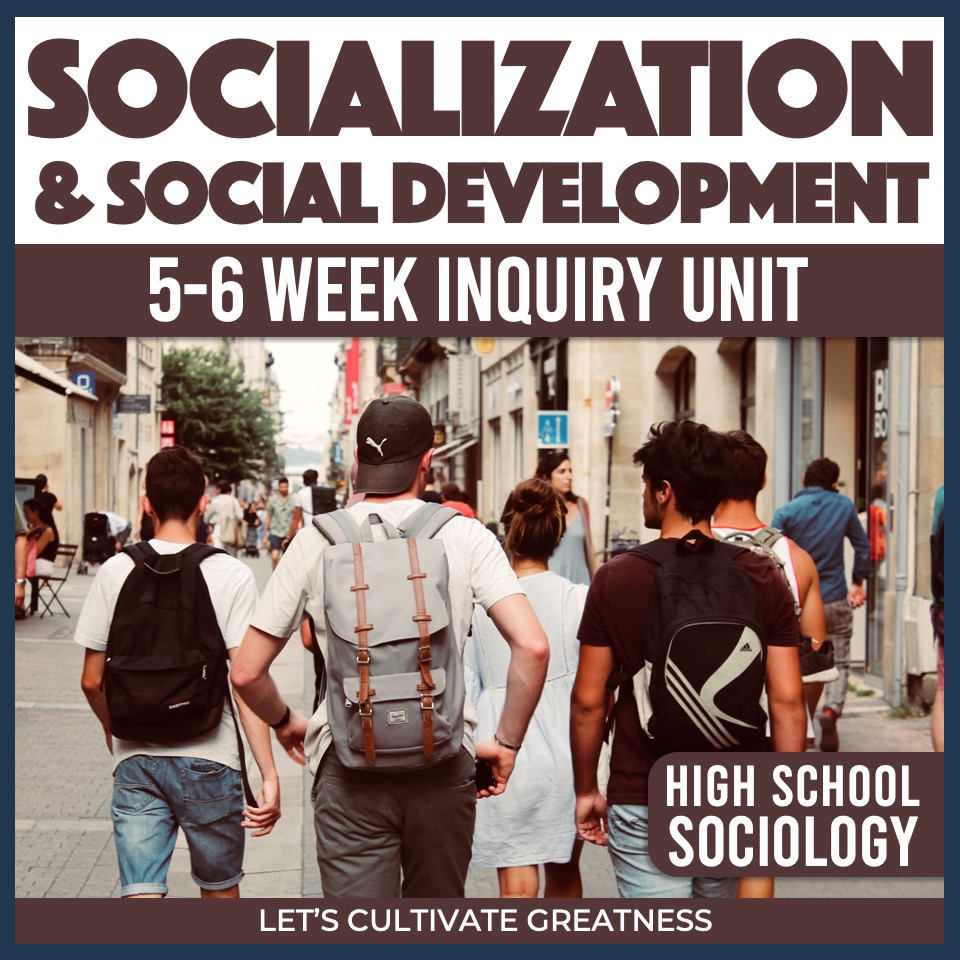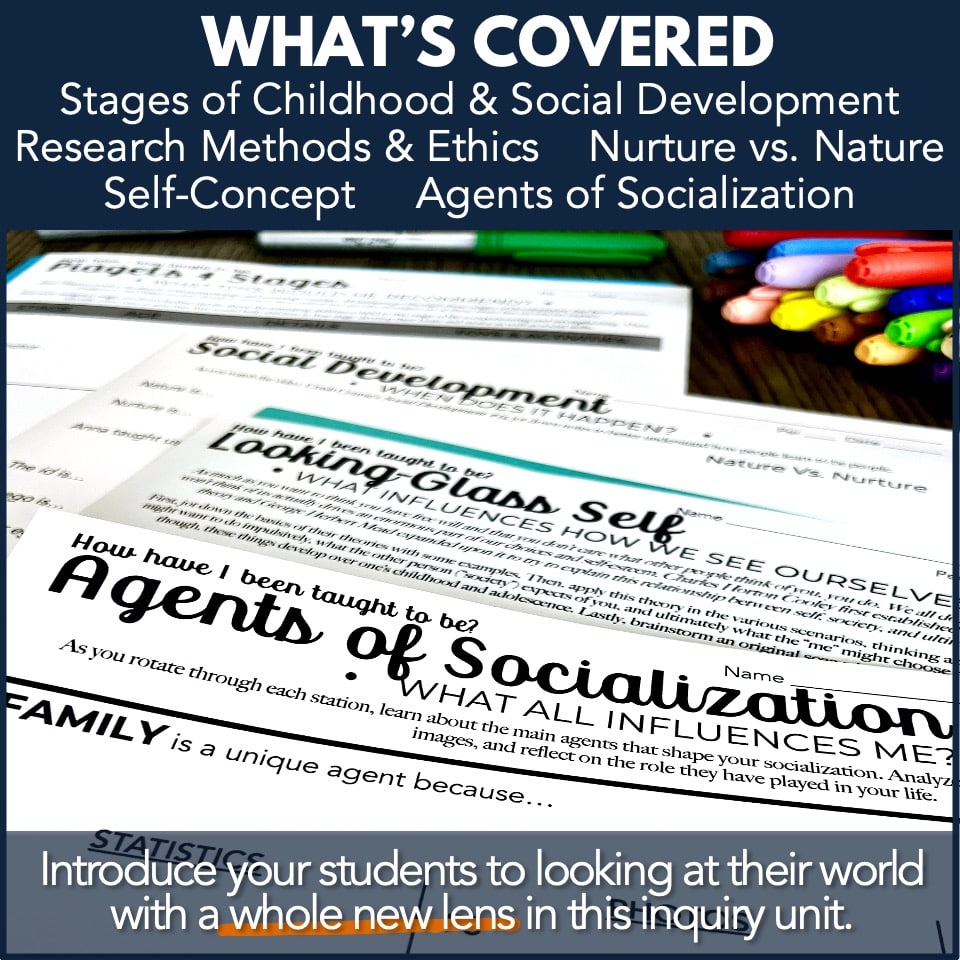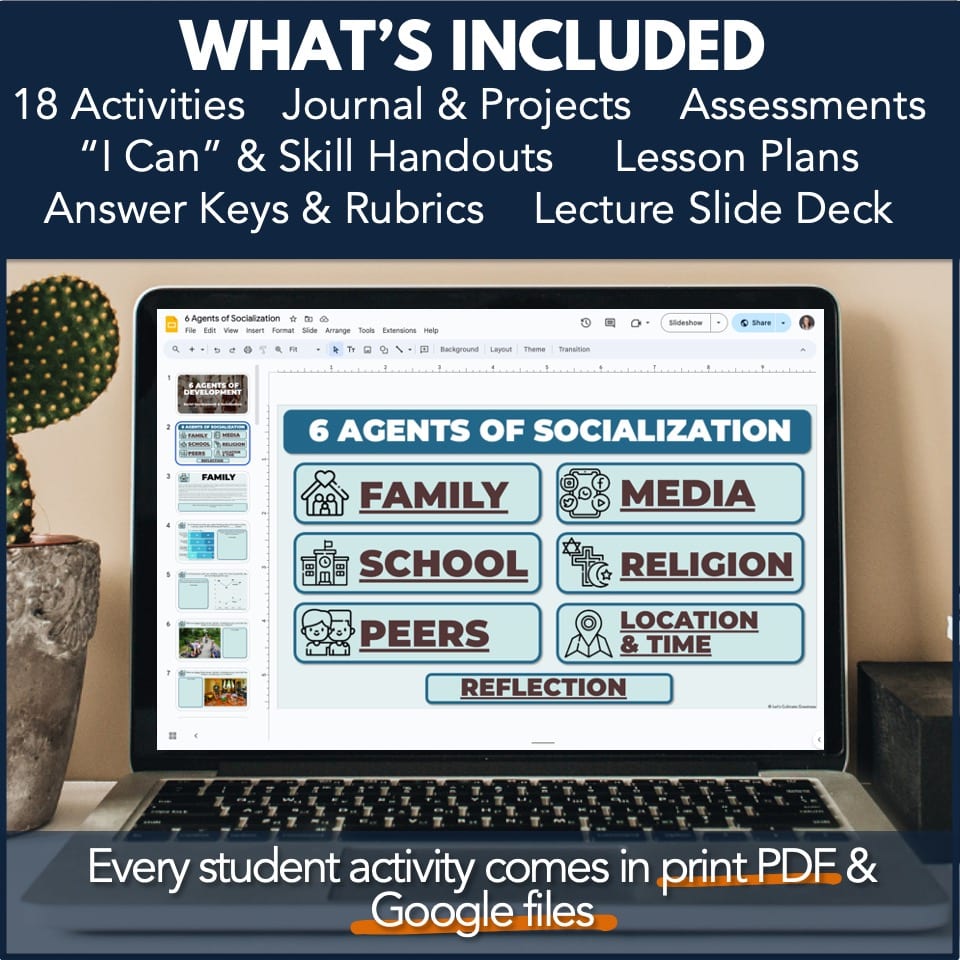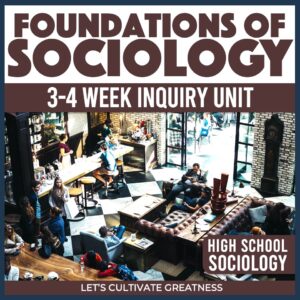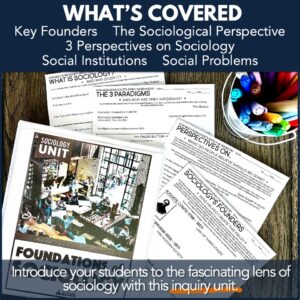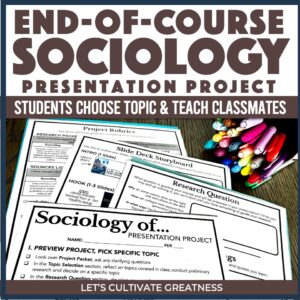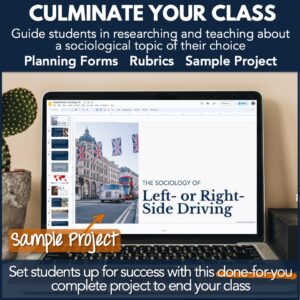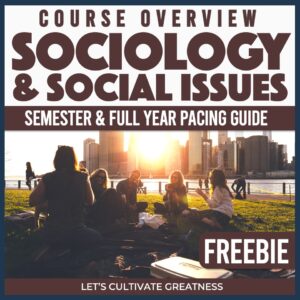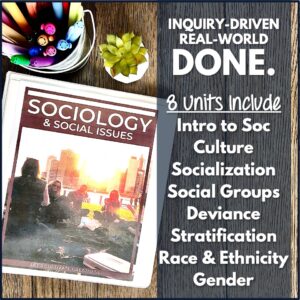Socialization & Social Development Unit
$32.95
Explore the main agents of socialization, nature vs. nurture, and stages of childhood development with this unit.
By the end, students will be able to answer, “How have I been taught to be?”
Description
This unit can be done well in 5-6 weeks and aligns with standards from various states. All student materials come in print-and-go PDF and editable Google files!
Included in this Socialization & Social Development unit:
Overview Materials
- Teacher Unit Overview with general notes, links, standards, and a pacing guide
- Daily Lesson Plans with step-by-step details, planning, and lesson takeaways
- Detailed Answer Keys for each activity
- Student Unit Review and Skills handouts with self-checking questions and “I Can…” standards statements in student-friendly language
- Student Unit Notes sheet for building deep and nuanced mastery of concepts of the unit
- Editable Parent Permission form to inform families about sensitive topics that are covered in this unit
Student Activities
- Unit Hook: survey self to identify one’s own personality tendencies and values, then reflect on how they are rooted in one’s upbringing
- 2 Crash Course Guided Notes: provide an overview of concepts with these videos and embedded “pause and talk” real-world application tasks (perfect lecture or textbook replacement or for a flipped classroom experience)
- Feral Children: view a documentary, Wild Child, that explores the detrimental experiences of young children who suffered from limited socialization
- Piaget’s 4 Stages and Gift Guide Project: identify the stages of childhood social development then develop a gift guide of toys to support learning and proper socialization for each stage to share with others
- Three Identical Strangers: view the compelling documentary, Three Identical Strangers, which explores the ethical issues of studying socialization; in this case, the outcomes of triplets separated at birth
- Agents of Socialization Stations: gain a solid foundation of 6 different agents and connect to own life and real-world examples
- Case Study: Free Play: investigate and discuss the socialization benefits of unstructured free play and the causes for its decline
- Hidden Rules of School: closely examine the behavior rules expected and taught throughout the school day
- Hidden Stories: re-read childhood classics and analyze for the socialization messages they missed the first time
- Looking-Glass Self & Meme Project: walk through Cooley’s and Mead’s theories about self-identity and then create a fun meme poster of how one believes others see them
- The Truman Show: view this comedic dystopian classic with a sociologist’s lens to explore just how impactful small daily messages can shape a person’s reality
- Case Study: Gen Z in the Workplace: investigate and discuss the socialization issues that Gen Zers are encountering as they enter the workforce
Lecture Kit
- 90-Slide Deck: introduce concepts with images and real-life examples; broken into four 30-45-minute lectures to deliver throughout the unit
- Guided Notes & Quizzes: support and assess learning with these no-prep tools
Assessments:
- Open-Ended Essay: encapsulate understanding of concepts by forming a personalized and supported answer to the not-so-simple question, “How have I been taught to be?”
- Short Answer Test Questions: succinctly assess students’ mastery of concepts and application to the real world and their own lives
- Sociologist’s Journal: builds deep reflection on personal beliefs and experiences about concepts
This resource includes 111 PDF pages, plus Google files.
Note: this unit includes viewing two films and a made-for-TV documentary (Three Identical Strangers, The Truman Show, and Wild Child)). An editable parent permission slip is included if needed.
What grades is this intended for?
This was designed for an upper high school level course.
Can I use this in a homeschooling setting?
Sure! Everything in this kit can still be used in a solo or a small-group setting.
Is this editable? What file types does this resource come in?
The main resource is a secured, non-editable PDF file intended to be printed.
Included are links to editable Google files, to customize to your classroom needs and assign digitally if you choose.
What standards does this address?
Several! Standards vary, but this resource supports these from various states:
- Define the key components of the socialization process including the roles of family, school, and peer groups, and concepts like nurture versus nature, hidden curriculum, self-identity, and stages of development
- Analyze and evaluate the ethics and issues involved in studying elements of socialization
- Describe the different stages of lifelong social development and their unique challenges
- Differentiate the various agents of socialization and evaluate their goals, functions, and impact
- Analyze the characteristics and effects of total institutions
- Describe how the self-concept is formed and the theories of Mead and Cooley that contribute to this aspect of socialization
What are the terms of use for this resource?
This resource, including all ancillary files, may be used as needed for regular, non-commercial single-classroom use between a teacher and their students.
This includes printing copies and sharing digital files with students through a secure platform, like Google Classroom or Canvas, email, or a classroom-only shared drive.
The using and sharing of any part of this resource in any manner outside the above-mentioned capacity is strictly prohibited. Prohibited uses include, but are not limited to,
- posting files on the open internet or in a Facebook group
- emailing files to or sharing print copies with others (without purchasing additional licenses)
- uploading or storing files in a shared cloud drive accessible by anyone other than students
- including any part, or any derivative work, within any commercial endeavor like curriculum development, professional training, or for-profit teaching like Outschool, or selling this resource as your own in either print or digital formats
Doing so violates the Digital Millennium Copyright Act (DMCA), copyright law, and these terms.
By downloading this resource from Let’s Cultivate Greatness, the original user has been granted one license for a single teacher (or number of teachers matching the number of licenses purchased) and their students at any one time.
Let’s Cultivate Greatness retains the full copyright of this resource.
This is the first time I have taught Sociology and I am LOVING these resources. It´s teaching ME which lets me turn around and teach my students. These resources are engaging and contain SO MANY different ways to teach that I have zero complaints. Thank you so much. - Jillian T.
Thank you for another wonderfully developed unit with resources and lesson plans. My students really enjoyed the different activities and truly understood the concept of socialization thanks to this resource. - Janelle B.
All the work is done for you for this Sociology unit! The handouts are well done and the formatting is professional. Easy to follow as curriculum laid out. - Gretchen D.

